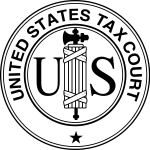 The West Virginia Supreme Court of Appeals held that the licensing of intangible trademarks and trade names by ConAgra into West Virginia did not subject ConAgra to corporate income tax.
The West Virginia Supreme Court of Appeals held that the licensing of intangible trademarks and trade names by ConAgra into West Virginia did not subject ConAgra to corporate income tax.
In sustaining the opinion of the state circuit court, which overturned the Board of Tax Appeals finding in favor of the commissioner, West Virginia’s highest court made some interesting observations for students of economic nexus. The court’s ultimate holding was based on the determination that ConAgra, through its wholly-owned intangible holding corporation, did not engage in “purposeful direction” under the Due Process Clause or establish “significant economic presence” under the Commerce Clause by use of its trademarks and trade names in West Virginia.
The court arrived at that conclusion after making these interesting observations. The court did not overrule but rather chose to distinguish its holding in Tax Commissioner v. MBNA America Bank, 220 W.Va. 163, 640 S.E.2d 226 (2006), cert. denied, 551 U.S. 1141, 127 S.Ct. 2997, 168 L.Ed.2d 719 (2007), which held that MBNA America’s use of trademarks in West Virginia established income tax nexus. The court distinguished MBNA on the grounds that ConAgra did not engage in the same “systemic and continuous” direct mail and telephone solicitation in West Virginia that characterized MBNA’s activities there.
The court also distinguished its holding in a non-tax case decided under the Due Process Clause. In Hill v. Showa Denko, K.K., 188 W.Va. 654, 425 S.E.2d 609 (1992), cert. denied, 508 U.S. 908, 113 S.Ct. 2338, 124 L.Ed.2d 249 (1993), the West Virginia Supreme Court considered whether the activities of a Japanese company’s wholly-owned subsidiary established personal jurisdiction for the parent company in the state. The court determined that the subsidiary in Hill was a “shell corporation” controlled by the parent and enforced jurisdiction. The court distinguished ConAgra’s subsidiary, ConAgra Brands, which held the intangible assets, from the subsidiary in the Hill case. While not necessarily finding economic substance in ConAgra Brands, the West Virginia court held that it was “not a shell corporation created solely for tax avoidance purposes.”
Finally, the court distinguished the economic nexus theories established by other jurisdictions. It rejected South Carolina’s famous economic nexus analysis in Geoffrey, Inc. v. South Carolina Tax Commission, 437 S.E.2d 13 (S.C.), cert. denied, 510 U.S. 992, 114 S.Ct. 550, 126 L.Ed.2d 451 (1993). It also denied application of the more recent economic nexus formulation set out in Iowa forth by KFC Corporation v. Iowa Department of Revenue, 792 N.W.2d 308 (Iowa 2010), cert. denied, _ U.S. _ , 132 S.Ct. 97, 181 L.Ed.2d 26 (2011).
Read the entire opinion here:
Commissioner v. ConAgra, No. 11-0252 (May 24, 2012)






